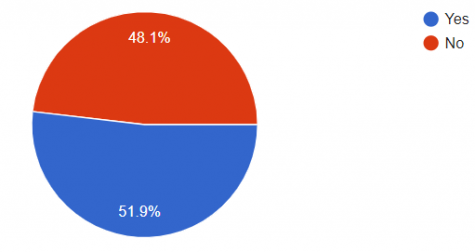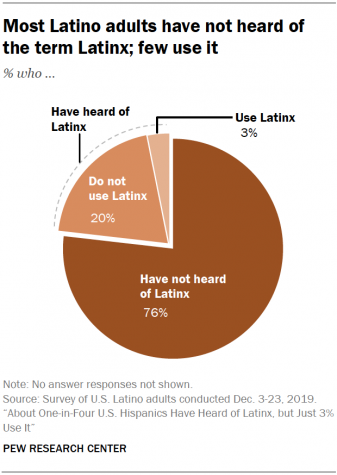The Importance of Latinx
How Latin Americans feel about the term
There have been terms for Latin Americans, whether originating from government or themselves, which they have used to reclaim their identity. Latin Americans have been called Hispanic, Latino/a, Chicano and now Latinx. However, not everyone agrees that Latinx can be something to describe Latin Americans for many reasons.
Merriam-Webster defines Latinx as, “a word for those of Latin American descent who do not identify as being of the male or female gender or who simply don’t want to be identified by gender.” It says that the word was added to the dictionary in September 2018 but was originally formed between 2000 and 2009. Latinx is something that has mostly been embraced by the LGBTQIA community since they’re able to embrace their ethnicity and not having to label themselves a gender.
The importance of Latinx is that it breaks apart from the Spanish language, which is based on gender. It’s become rare for anyone in Latin countries to say that they’re gender neutral. Coming out or being transgender is extremely frowned upon so identifying as Latinx will raise eyebrows.
I asked my mother, who was born and raised in El Salvador, about how she feels about the word Latinx? Her simple response was, “What is that?” It’s simple to figure out that many people from Spanish-speaking countries will have that same response since “x” is typically silent and has no use to them when talking to someone.
Then she guessed, “Is it for Latinos that are transgender?” She was confused about it because she’s only ever heard Latin Americans saying that they’re Latino/a or from their specific country of origin.
Once I gave her the Merriam-Webster definition, she said, “It sounds weird but I feel like not a lot of people that come from Latin America might not know what you’re saying. Obviously this generation knows about it since they’re constantly in the know about making a change while previous generations are occupied with their livelihood.”
It makes sense that many who came from Latin America would have this mindset since they’re fighting against society to make a living and aren’t able or have the time to focus on the problems in their communities.
Many people in this generation are very accepting of the term Latinx, and there are some first generation Latin Americans who are heavily against it. The Pew Research Center conducted a survey about the term Latinx. It showed that 23 percent of people who identify as Hispanic or Latino had heard of Latinx and only 3 percent identified with it. It’s extremely surprising that the term Latinx isn’t being used as much as many might think, and that made me wonder why.
I made my own survey, of 27 people, which gave me insight into how they feel about the term Latinx. About 14 people agreed with the word, and about 13 people didn’t agree with it. The mixed response was interesting since it seems this generation would be more accepting of the term but some responses showed how they heavily disagreed.

When I asked a close family member who is a first-generation American about Latinx, he said, “Do you identify with it because it’s a feminism thing?”
No, I responded. “I think it’s important to be an ally with those who use the term Latinx and normalize the use of it.” I’m not saying that everyone has to use the term because it’s a personal matter on how we identify but it’s important that we don’t discredit those who do use it.
My relative said, “I’m not against it because throughout the years the language is changing, and Latinx is just another word that is being made. It’s possible that it may not stick and that people might come up with another word.” In fact, there’s a new word, Latine, which has the same connotations as Latinx.
The Pew Research Center found that women are more likely than men to use Latinx. “Hispanic women ages 18-29 – 14 percent say they use it, a considerably higher share than the 1 percent of Hispanic men in the same age group who say they use it.” This disparity can most likely be due to Latin culture, which resists change.

In my survey, some respondents said they believed that it’s inclusive while others thought Latinx was just a word coined by the oppressor. Saul Prado, a past historian for Hermanos Unidos at California State University, Northridge, told me, “Latinx is just a word. If people feel that they don’t identify with it, then don’t use it, but I think it’s OK that people use it. They’re able to feel comfortable with who they are, which I think doesn’t harm anyone.”
At this point it seems that Latin Americans will feel differently about the term Latinx since many might not know its significance and think it’s just a word being pushed on them. However, people need to see the importance of the term Latinx and why people use it. It’s not an irrelevant word imposed by the oppressor or a word that is destroying the Latin culture. It’s simply a word that is used for gender-neutral Latin Americans who must have felt a disconnection with their culture since they’ve never had a choice to identify themselves. Now with Latinx, they’re able to feel noticed within their culture, and it’s time that we hear them.
Ana Pineda-Gonzalez can be reached at [email protected]

